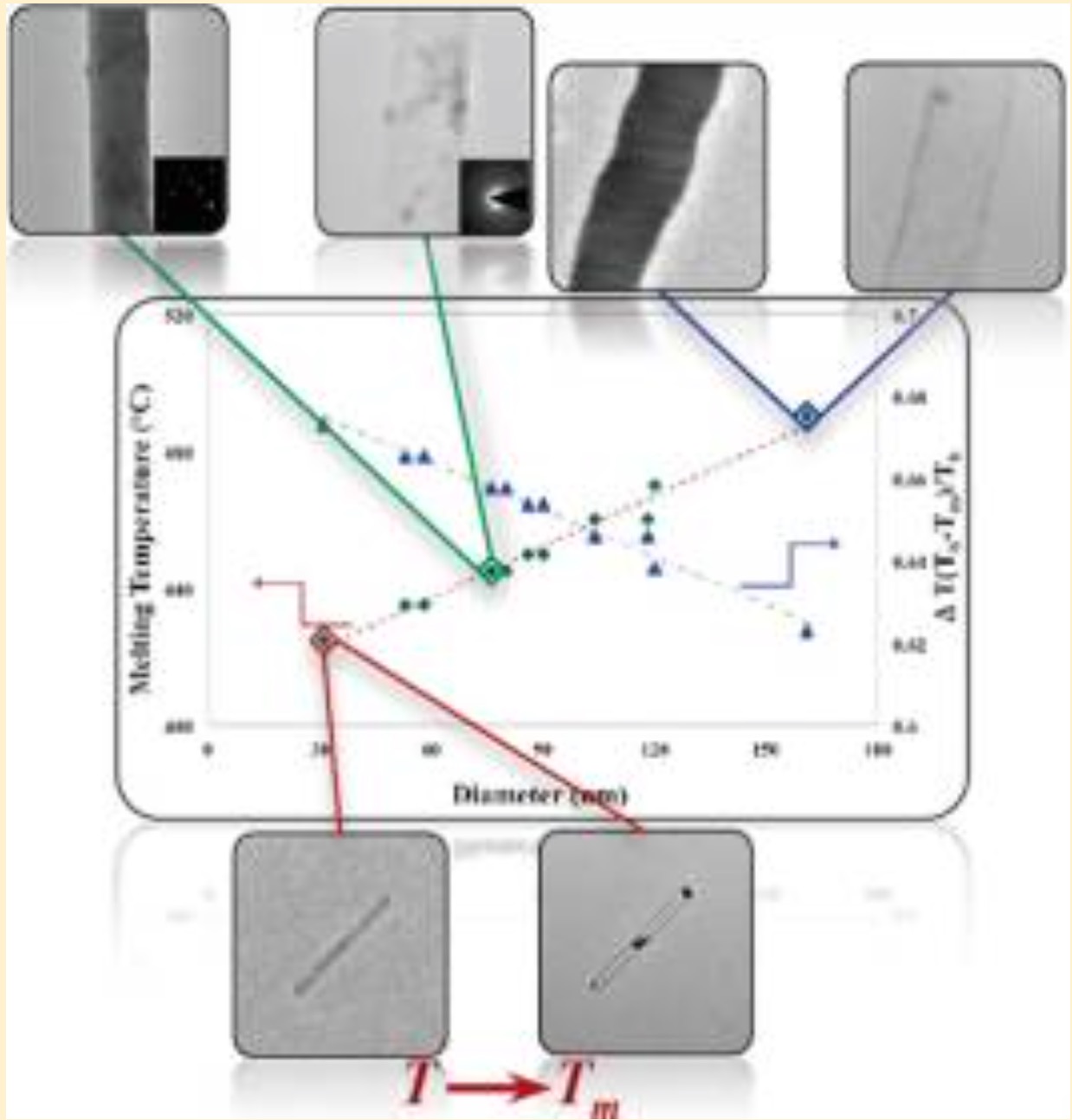The melting behavior of ZnTe nanowires has been investigated using a transmission electron microscope in both bright field and high-angle annular dark field modes. The ZnTe nanowires, 30-160 nm in diameter, were heated using a controllable heating system, and their melting temperature was studied. The results showed a significant reduction of the melting temperature of about 450 C, depending on the diameter of the nanowire, compared to the bulk melting point of 1300 C. In addition, scanning transmission electron microscopy using high-angle annular dark field imaging was carried out to structurally analyze the ZnTe nanowires after melting.

The melting behavior of ZnTe nanowires has been investigated using a transmission electron microscope in both bright field and high-angle annular dark field modes. The ZnTe nanowires, 30-160 nm in diameter, were heated using a controllable heating system, and their melting temperature was studied. The results showed a significant reduction of the melting temperature of about 450 C, depending on the diameter of the nanowire, compared to the bulk melting point of 1300 C. In addition, scanning transmission electron microscopy using high-angle annular dark field imaging was carried out to structurally analyze the ZnTe nanowires after melting.
